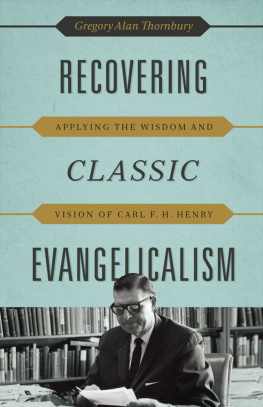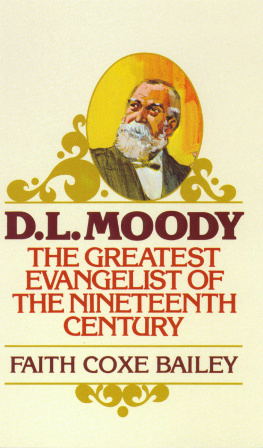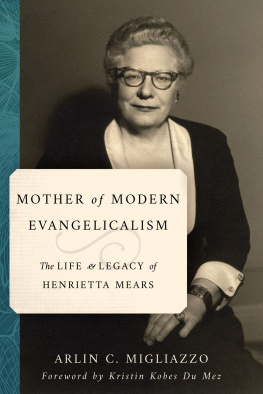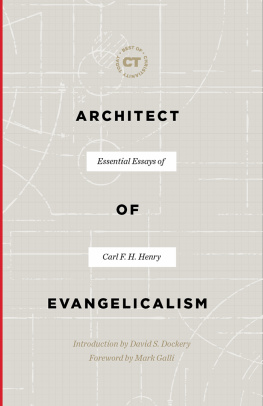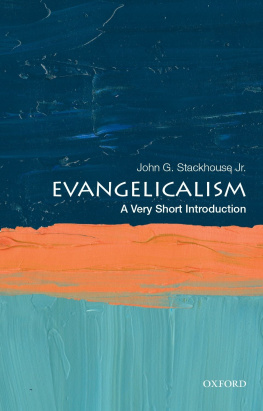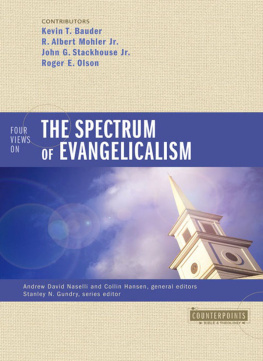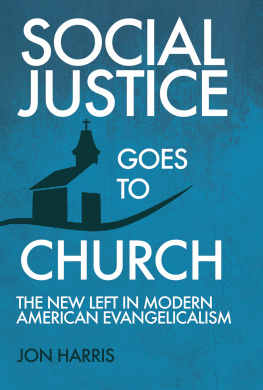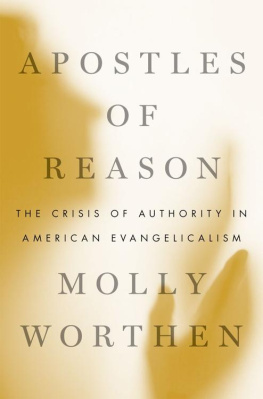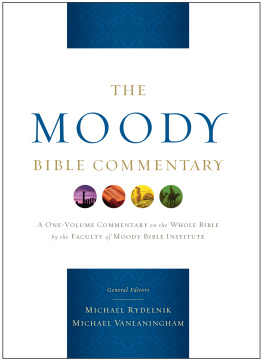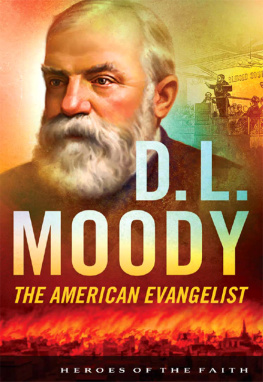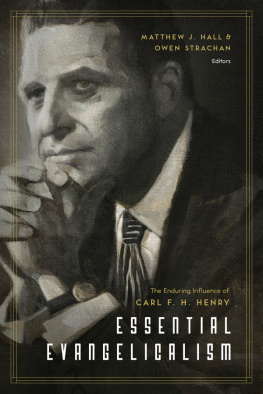Guaranteed Pure
Guaranteed Pure
The Moody Bible Institute, Business, and the Making of Modern Evangelicalism
Timothy E. W. Gloege
The University of North Carolina Press
Chapel Hill
2015 The University of North Carolina Press
All rights reserved
Set in Calluna
by codeMantra
Manufactured in the United States of America
The paper in this book meets the guidelines for permanence and durability of the Committee on Production Guidelines for Book Longevity of the Council on Library Resources.
The University of North Carolina Press has been a member of the Green Press Initiative since 2003.
Cover illustration: A. F. Gaylord, business manager of the Moody Bible Institute, June 1927. Courtesy of the Moody Bible Institute Archives.
Complete cataloging information can be obtained online at the Library of Congress catalog website.
ISBN 978-1-4696-2101-2 (cloth: alk. paper)
ISBN 978-1-4696-2102-9 (ebook)
For Lillian and Eleanor
Contents
Illustrations
A share certificate for Moodys Sunday school
Moody preaching during his 187576 Philadelphia campaign
Emma Dryer
Reuben A. Torrey
Workday scene at Moody Bible Institutes Printing Bureau
Quaker Oats advertisement
Moody Bible Institute leaders Henry Crowell, James M. Gray, and Thomas S. Smith
Offices of the Moody Bible Institute Extension Department
1914 Prophecy Conference at Moody Bible Institute
Cover of the Moody Bible Institute Monthly inaugural issue
Moody Bible Institute students depicted as The Answer to Labor Unrest
Moody Bible Institute: a Power House of Practical Christianity
Acknowledgments
A decade of work has created many debts for me to gratefully acknowledge. The history department at the University of Notre Dame provided many mentors. As my advisor both in graduate school and after, George Marsden has modeled immense patience, thoughtfulness, and generosity that have been equal to his scholarly accomplishments. I benefited greatly from Gail Bedermans exemplary work in cultural history and her mentorship during a two-year postdoctoral fellowship. John McGreevy asks among the best (and most difficult) questions of anyone I know. My work is much better for seeking to answer them as a result. Doris Bergen modeled how to write religious history that engages wider cultural trends. Her perspective, grounded in the European context, brought a broader perspective into my work. Thanks also to Walter Nugent, David Waldstreicher, Scott Appleby, James Turner, Kathleen Sprows Cummings, Ted Beatty, Fr. Thomas Blantz C.S.C, Catherine Schlegel, and Tom Slaughter for their important contributions to my development as a historian.
I have benefited greatly from several sources of institutional support. A Charlotte W. Newcombe Fellowship from the Woodrow Wilson National Fellowship Foundation in 20067 allowed me to devote my final year of graduate school exclusively to writing. The University of Notre Dame supported my research in Chicago and Los Angeles through a Zahm Travel Grant. An Edward Sorin Postdoctoral Fellowship provided resources to do additional research and time to sketch out this books initial framework. An invitation to give a paper at Biola University in 2003 allowed me to make an investigatory examination of its archival resources and introduced me to members of the Torrey family. I give my sincere thanks to all of these organizations.
Of the many people that contributed to the development of this book, three fellow travelers in the history of fundamentalism require special note. Matthew Sutton was an early advocate of this project. His close reading of my manuscript improved both its ideas and its prose. The influence of his work on fundamentalism will be evident in these pages. The same can be said of Kathryn Lofton. She, too, gave generously of her time and offered critical interventions that helped expand my horizons and clarify several still-nascent ideas. She has proven repeatedly that kindness and brilliance are not mutually exclusive qualities. Her belief in the project helped shore up my waning confidence at a critical juncture. Brendan Pietschs late interventions during my final revisions were immensely helpful. I deeply appreciate his wit, insight, crystal-clear thinking, and the generosity with which he gave of his time and expertise.
I appreciate the many people at the University of North Carolina Press who made this book possible. Special thanks to Elaine Maisner for believing in this project and allowing me the time to develop it fully. Thanks also to Alison Shay and Caitlin Bell-Butterfield for guiding me through the publishing process, and to Jay Mazzocchi for his many improvements to the manuscript.
I am grateful to many archives, both public and private. Thanks to the Minnesota Historical Society in St. Paul, Minnesota, and the Kautz Family YMCA Archives at the University of Minnesota in Minneapolis. Chicago offers many wonderful resources for historians, including the Chicago Historical Society, Newberry Library, the University of Illinois at Chicago Library, and the great collection of historical newspapers at the Herold Washington Library Center.
It speaks to the maturity and stability of an institution when it gives access to its historical records. I am immensely grateful to the Moody Bible Institute (MBI) in Chicago for its openness. In addition to the standard materials housed in the archives, I was also given access to trustee and executive committee minutes and other corporate documents hitherto unexamined by historians. These were once housed in the MBI administrative offices, but they can now be found in the archives. Particular thanks to Tim Ostrander, Robert Gunter, and Michael J. Easley for granting this access and to Cassandrea Blakey for assistance with the materials. At the archives, thanks are due to the late Wally Osborne, Joe Cataio, Nikki Tochalauski, and especially Allana Coxwell Pierce for going above and beyond on several occasions.
At Biola, thanks to Fred Sanders for his initial invitation to give a paper at Biola, for his insights into Reuben A. Torrey, and for an advanced preview to the ongoing digitization project of the Kings Business. Sue Whitehead reworked her busy schedule to allow me extra time in the archives and graciously allowed me to use digital photography to accommodate my limited stay in Los Angeles. Additional thanks to Carri Javier and Flo Ebeling for spending several afternoons and evenings in the archives extending my access even further. It was with Flo that I discovered a cache of misfiled and forgotten letters for the Testimony Publishing Companythe organization responsible for The Fundamentals. These documents provided an unprecedented inside look at their creation. Greg Vaughan and family, and Gary and Jen Hartenburg, offered much-appreciated hospitality in Los Angeles. I am also indebted to Darren Dochuk for research tips, sharing travel costs, and many interesting and helpful discussions. Bill Svelmoe helped with introductions and other important matters.
Some of my sources were culled from locations other than archives, forcing me to impose on the goodwill of individuals. The kindness, trust, and cooperation of the Torrey family was essential. Particular thanks to Slade Johnson for bearing with my constant pestering for sources and for putting me in contact with other family members. Lyn Newbrander offered the use of her extensive, previously unexamined collection of Torrey family correspondence, books, photographs, and ephemera. This gave me access to essential materials from Torreys ministry in Garrettsville and Minneapolis, including an original diary from 1889 that was significantly altered when it was later published by MBI. I hope I repaid her trust by leaving the documents in better condition than I found them. Although this project did not turn into a biography of Reuben Torrey, as I had originally anticipated, I hope the book will help humanize this complex but often-caricatured figure. Archival descriptions of Torreys warm and affectionate private life came alive in my interactions with his descendants. They also modeled the continuing relevance of Torreys theology for many evangelicals today.
Next page


